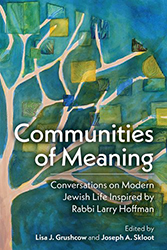Judaism offers us unique — and often divergent — insights into contemporary moral quandaries. How can we use social media without hurting others? Should people become parents through cloning? Should doctors help us die?
The first ethics book to address social media and technology ethics through a Jewish lens, along with teaching the additional skills of analyzing classical Jewish texts, The Jewish Family Ethics Textbook guides teachers and students of all ages in mining classical and modern Jewish texts to inform ethical decision-making. Both sophisticated and accessible, the book tackles challenges in parent-child relationships, personal and academic integrity, social media, sexual intimacy, conception, abortion, and end of life. Case studies, largely drawn from real life, concretize the dilemmas. Multifaceted texts from tradition (translated from Hebrew and Aramaic) to modernity build on one another to shed light on the deliberations. Questions for inquiry, commentary, and a summation of the texts’ implications for the case studies deepen and open up the dialogue.
In keeping with the tradition of maḥloket, preserving multiple points of view, “We need not accept any of our forebears’ ideas uncritically,” Rabbi Neal Scheindlin explains. “The texts provide opportunities to discover ideas that help us think through ethical dilemmas, while leaving room for us to discuss and draw our own conclusions.”

The Jewish Family Ethics Textbook
Discussion Questions
In an era of deep polarization, it is refreshing to encounter a book that tackles complex issues with sensitivity, intellectual curiosity, and open mindedness. Rabbi Neal Scheindlin’s The Jewish Family Ethics Textbook mines the Jewish textual tradition to ask a variety of questions. The breadth of the book astounds. It asks questions as wide ranging as the ethics of withholding information from a prospective employer to the question of physician assisted dying. For each question, Rabbi Scheindlin provides a panoply of sources — he takes from the classical, modern, and every epoch in between — and equips readers of all backgrounds with ways to investigate and understand them. These sources do not force the reader’s hand in making decisions. Rather, they present the reader with multiple avenues of consideration. The questions and commentary that Rabbi Scheindlin provides help elucidate each topic and allow for deep contemplation. This book is an educator’s dream — and yet, it will also inspire those engaged in independent study. For any individual looking to see how Jewish text might weigh in on some of the most pressing ethical issues of our time, The Jewish Family Ethics Textbook is a gift.

Help support the Jewish Book Council.



